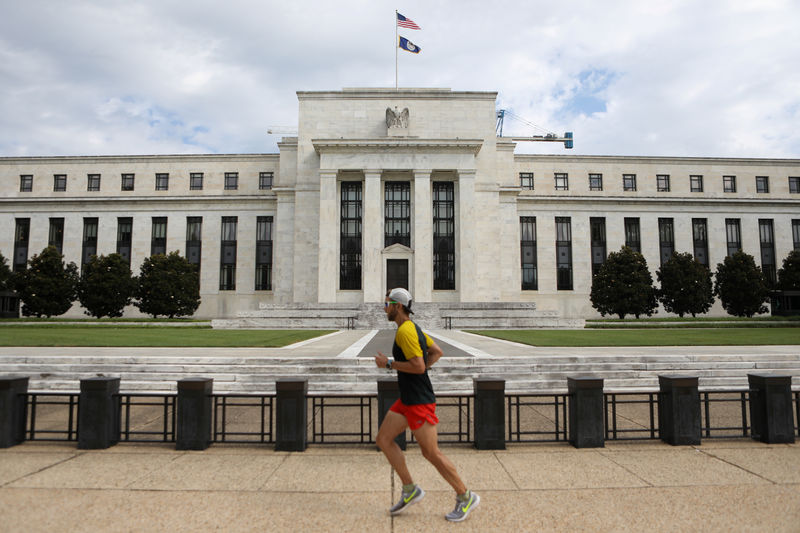
© Reuters.
By Yasin Ebrahim
Investing.com – Federal Reserve policymakers said the central bank could taper its monthly bond purchases in mid-November or mid-December, but debate on how soon to hike rates continues to divide members, according to the minutes of the September meeting.
At the conclusion of its previous meeting on Sept. 22, the Federal Open Market Committee kept its benchmark rate in a range of 0% to 0.25%, but indicated that it could begin scaling back its $120 billion monthly bond purchases at the next meeting.
“Participants noted that if a decision to begin tapering purchases occurred at the next meeting, the process of tapering could commence with the monthly purchase calendars beginning in either mid-November or mid-December,” the Fed minutes showed.
The Federal Reserve is aiming to end the taper of its bond buying program around mid-2022, pointing to a taper of about $15 billion per month.
“The path featured monthly reductions in the pace of asset purchases, by $10 billion in the case of Treasury securities and $5 billion in the case of agency mortgage-backed securities,” according to the minutes.
But the ongoing pace of inflation has piled pressure on the Fed to begin laying out the groundwork for rate hikes. Fed members are divided on when to hike rates amid differing views on when the labor market is likely to reach the central bank’s threshold of maximum employment.
Some members believe it would appropriate to keep rates at or near their lower bound over the next couple of years. But a number of participants “raised the possibility of beginning to increase the target range by the end of next year because they expected that the labor market and inflation outcomes specified in the Committee’s guidance on the federal funds rate might be achieved by that time,” the minutes showed. “Some of these participants saw inflation as likely to remain elevated in 2022 with risks to the upside”
Further positive economic data, particularly in the labor market, where unemployment continues to decline, may force the Fed’s hand.
“There are risks of a little earlier than expected interest rate increase … as we’re likely to get good economic data that make the Fed feel more comfortable about normalizing interest rates,” Eric Green, chief investment officer of equity at Penn Capital told investing.com in a recent interview.
The rise in Treasury yields that will likely follow the tightening of monetary policy is unlikely to derail the economy. “Rates going from one and a half percent to maybe two or even two and a half percent over the next 12 months, is not going to choke off the recovery,” Green added.
Source: Investing.com




























